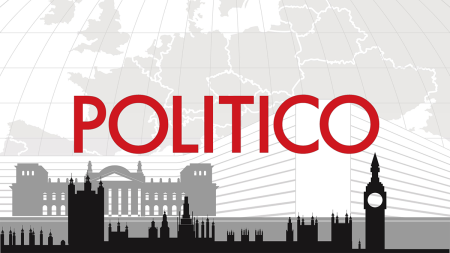In a recent television interview, Marine Le Pen, leader of the National Rally party in France, claimed that legal actions against her party are politically motivated and represent a continuation of a scheme initiated in 2014 by left-wing politicians, particularly former European Parliament President Martin Schulz and then-Justice Minister Christiane Taubira. This accusation highlights Le Pen’s belief that these legal proceedings are not based on objective wrongdoing but rather an orchestrated attack against her and her party, suggesting a politicized justice system that unfairly targets right-wing figures.
The National Rally, under Le Pen’s leadership, has responded to allegations of misconduct by alleging bias within the judiciary, specifically citing statements made by prosecutor Louise Neyton during court proceedings. Notably, Neyton expressed that proposing an acquittal for a specific case would be “too painful” for her, despite admitting the prosecution’s lack of substantial evidence. This statement was seized upon by Le Pen’s party as further evidence of a biased legal system, demonstrating how the narrative of victimization plays a critical role in their defense strategy. It mirrors the language and tactics previously employed by Donald Trump in the United States, where legal challenges are dismissed as part of a broader “witch hunt.”
Marine Le Pen’s approach of framing the legal battle as a fight against a biased judiciary reflects a broader historical narrative tied to her family’s political legacy. Her father, Jean-Marie Le Pen, often criticized the judicial system, referring to judges as “red judges” and asserting that leftist bias pervaded French institutions. This tactic may indicate a return to familiar themes within the far-right rhetoric, focusing on perceived injustices rather than substantive legal arguments. As the National Rally continues to navigate these legal challenges, it simultaneously engages in a careful political rebranding aimed at cultivating a more moderate image.
Under Marine Le Pen’s leadership, the National Rally has attempted to evolve from its fringe origins as the National Front, notorious for its extremist views on immigration and antisemitism, toward a more mainstream political entity. This rebranding necessitated the abandonment of some of the party’s historically unpopular positions, such as exiting the eurozone, and the exclusion of members whose views could harm its image, including her father. Such efforts represent a calculated move to present the party as a viable alternative to traditional political forces in France while attempting to mitigate its past associations with extremism.
While Le Pen strives to alleviate the extremist connotations of her party, she remains rooted in key principles of nationalism and Euroskepticism. This balancing act involves reshaping the Party’s historical baggage while simultaneously capitalizing on public sentiments that favor stringent immigration policies and critiques of the European Union’s influence in France. Le Pen’s nuanced approach has allowed her to maintain her base while also appealing to a broader electorate that may be apprehensive about a return to the more extreme positions of the party’s origins.
In conclusion, the ongoing legal struggles faced by Marine Le Pen and the National Rally underscore the complexities of navigating a political landscape marred by perceptions of bias and historical reputation. By framing the legal actions against her as politically motivated and invoking her father’s legacy of challenging the judiciary, Le Pen seeks to position herself and her party as victims of a corrupt system. While the National Rally attempts to shed its past extremism, it continues to engage with core nationalist sentiments that resonate with a sizeable portion of the French electorate, thereby influencing France’s political discourse amidst growing populist sentiments in Europe.














